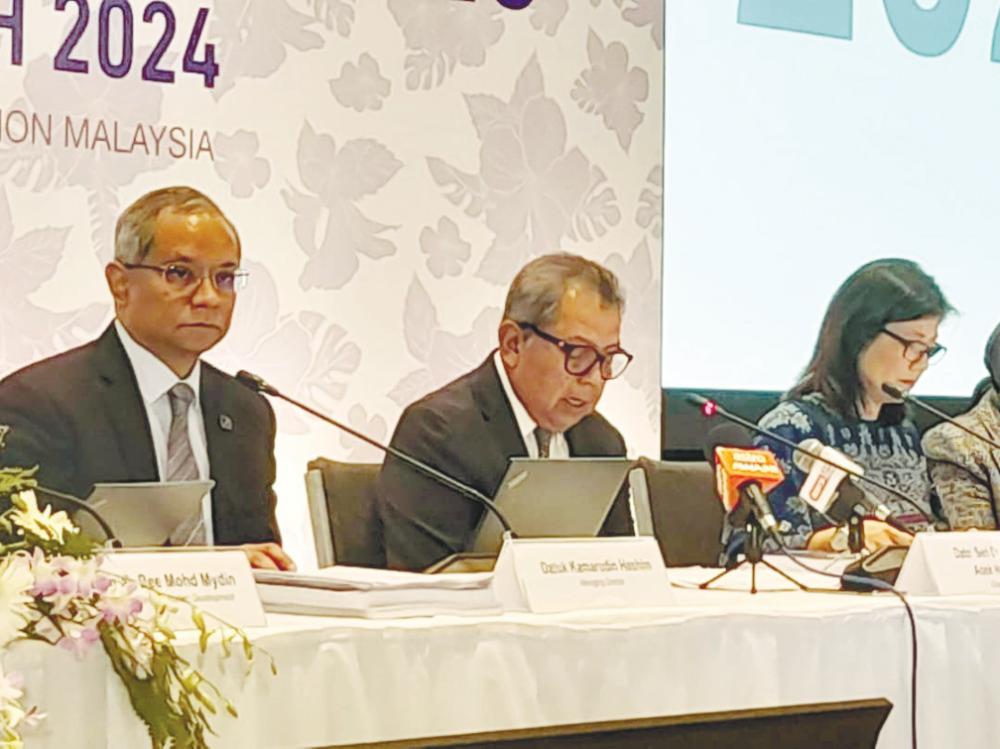BUKIT KIARA: The Securities Commission Malaysia (SC) is intensifying efforts to combat financial scams via cross border collaboration following a staggering 321% increase in reported incidences within five years.
Executive chairman Datuk Seri Dr Awang Adek Hussin said the Asia-Pacific Regional Cooperation (APRC), a part of the International Organization of Securities Commissions (IOSCO) regional committee shared concern over the rising financial scams.
“We meet twice a year. The last one was in Hong Kong. During that meeting everybody was very, very concerned about scams. We thought that a project should be carried out to have greater sharing of information at APRC level. That is being done. We do a lot in terms of cooperation. That cooperation extends to that (restitution) as well,” he said at the SC 2023 annual report press conference today.
According to its Annual Report 2023, the SC received 3,262 complaints and enquiries on scams and unlicensed activities last year, representing an increase of 321% within five years (2019-2023). The SC received 774 complaints and enquiries on such activities in 2019.
In 2023, the SC imposed RM19 million in fines as part of administrative actions. These funds however do not go directly to the SC but are debts owed to the government under securities law.
In addition to the scams, the SC said there were also increasing concerns observed involving the conduct of unlisted public firms and entities offering Cash Trust products.
Awang Adek said that the SC has also signed a MoU among the member countries of IOSCO for cooperation and exchange of information and assistance upon request.
However, he added there are no joint raids or any involvement from other regulators coming to Malaysia.
“But we can arrange for questioning. If we want to question somebody in other jurisdictions, we can send our team to go and take a statement. That can be done with assistance from our peer regulator,” he explained.
The regulator said in most of these scams, the perpetrators used fake websites, social media pages and mule bank accounts to promote and carry out their illegal activities.
In many of these cases, the scammers had falsely lent credence and legitimacy to their illegal activity by misusing the name of agencies such as the SC, Bank Negara Malaysia, the Companies Commission of Malaysia, licensed intermediaries and images of local celebrities and religious leaders.
The report said in 2023, the use of social media platforms, particularly Facebook and Telegram, continued to be the primary mode for perpetrators to carry out their illegal activities.
The regulator noted that the mode of payment adopted by these investment scams had also changed to e-wallet and cryptocurrency from mule bank accounts used previously.
The SC also observed the evolution of the common job and love scams which now have elements of investment scams as well.
The regulator said that in cognisance of the perpetrators’ evolving tactics, the SC continues to undertake ongoing monitoring and supervision to mitigate the risk of its regulated entities being potentially used as conduits for illicit activities.
While some of the unlicensed activities are carried out locally by Malaysians, there were also foreign entities conducting unlicensed activities in Malaysia, the SC added.
It said these foreign entities may be properly licensed or regulated by foreign regulators. However, they would still be breaching Malaysian laws if they carry out their activities in Malaysia, solicit Malaysian clients or have a local presence in Malaysia without the requisite license or registration from the SC.
As of Dec 31, 2023, a total of 569 URLs (2022: 382 URLs) have been detected for potential breaches on offering unlicensed activities to Malaysians.
Of these, 51% were from Telegram, 27% were from Facebook, 9% from Instagram and 13% from other sources such as websites, YouTube and TikTok, among others.









